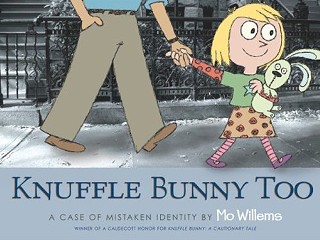It Is What It Is
The year in books
Fri., Jan. 4, 2008
It was mostly smooth waters in publishing this year – no single book sounded trumpets, no spectacular duds, either – but what we got were a few new additions to and from the pantheon and a smattering of sit-up-and-listen debuts.
Following last year's Everyman, Philip Roth continued his long goodbye (every new book feels like another adieu) with Exit Ghost (Houghton Mifflin), bookend to 1979's The Ghost Writer (see Jay Trachtenberg's year-end thoughts for more). Don DeLillo, whose archives have a home at the Harry Ransom Center, also visited mortality in Falling Man (Scribner), what some critics called the most significant 9/11 novel to date.
There were new works from the new old guard – the ones not yet canonized but certainly waiting in the wings. Denis Johnson, who regularly moonlights at local universities, won the National Book Award for his Vietnam novel, Tree of Smoke (Farrar, Straus and Giroux). Michael Chabon took a cue from Roth in the "what if?" subgenre of historical speculation with The Yiddish Policemen's Union (HarperCollins). The always-reliable Richard Russo came out with a doorstop of a novel, Bridge of Sighs (Knopf). And Ian McEwan's slim meditation on sexual repression, On Chesil Beach (Nan A. Talese), was elegantly crafted but felt like an awful tease.
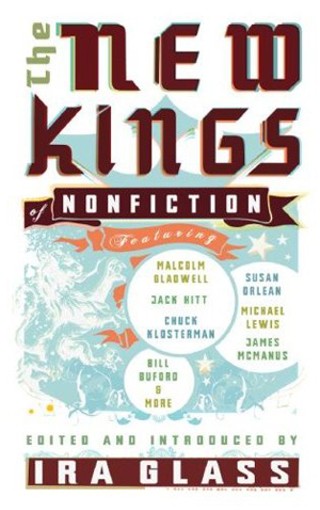
The new new guard announced itself with Junot Díaz's spark plug of a novel, The Brief Wondrous Life of Oscar Wao (Riverhead Hardcover), which artfully weaved comic book lore with Dominican history and weaved in and out of Spanish, no less (Belinda Acosta's got more to say about that). And Rudolph Delson's sweetish Manhattan romancer Maynard and Jennica (Houghton Mifflin) read like a 304-page blueprint for next year's arthouse rom-com, so it shouldn't surprise anyone that it was optioned while still in galleys.
On the nonfiction front, our personal favorites numbered two: The Braindead Megaphone (Riverhead Trade) and The New Kings of Nonfiction (Riverhead Books). The first – from fiction writer George Saunders, who wooed audiences at November's Texas Book Festival with his dead-sexy mix of corduroy and wry – was a collection of essays kicked off by a coulda-been-dour piece decrying public apathy that read instead like a rousing call to action. The second, edited by Our Man in Chicago Ira Glass, was a far-ranging compendium of the past 20 years' best feature writing (Susan Orlean's sly but weighty "The American Man, Age 10," from 1992, is a miniature masterwork). Best yet, proceeds from the book benefit 826 Chicago, whose mission is to encourage youths to embrace the written word. Reading. We hear it's fundamental. – Kimberley Jones
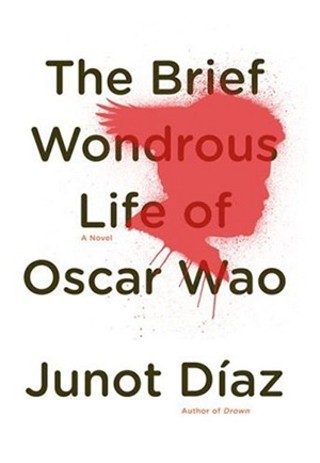
The Pleasure of Your Company
As a writer, you can't help studying other writers' work, even when reading for pleasure. But there are those writers who draw you into their prose with such skill, you don't pause to critique; you just keep reading. Manuel Muñoz's short-story collection The Faith Healer of Olive Avenue (Algonquin) and Junot Díaz's novel The Brief Wondrous Life of Oscar Wao are two of those books. Muñoz's fearless short stories about small, defining moments of heartache are almost unbearable. But don't be put off: His elegant prose and knack for selecting those poignant moments are alchemic. Diaz's novel – about a painfully nerdy Dominican American, a curse, and his family and friends making their way in working class New Jersey – also has its share of heartbreak, leavened by well-placed guffaws. An unconventional narrative style, using footnotes for historical and anecdotal commentary, and an omniscient narrator who later reveals himself (the foul-mouthed yet strangely appealing Yunior) may unsettle narrative purists and the generally straight-laced. Still, it's a dazzling read that's hard to put down. – Belinda Acosta
Food Stuffs
Because this is the year the locavore movement found traction in our cultural consciousness, I would be remiss if I didn't applaud Barbara Kingsolver's Animal, Vegetable, Miracle (HarperCollins), a memoir – co-authored by Kingsolver's husband and daughter – of a family that dined on the fruits of its labor for a year. Taking a longer historical view is former New York Times food critic Molly O'Neill's exhaustive American Food Writing: An Anthology With Classic Recipes (Library of America), which surveys more than a century of writings on everything from the virtues of growing one's own dinner (Nathaniel Hawthorne) to the immigrant's version of takeout meals (Jhumpa Lahiri). Monica Pradhan puts a diasporic spin on chick-lit with The Hindi-Bindi Club (Bantam Books), which follows three Indian-American mother-daughter dyads as they negotiate the tensions of old and new worlds via the exchange and preparation of beloved recipes. Harry Potter and the Deathly Hallows (Scholastic) was the perfect goodbye to a beloved boy hero, and Mo Willems' Knuffle Bunny Too (Hyperion) is a triumph of visual and narrative creativity. – Melanie Haupt
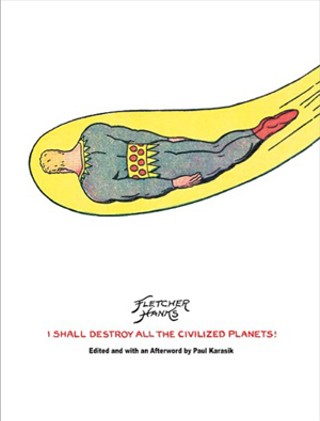
I Shall Anoint You the Awesomest of the Year!
Not necessarily the best but definitely the most interesting and entertaining book of the year, I Shall Destroy All the Civilized Planets! (Fantagraphics) introduced a new generation to largely forgotten artist Fletcher Hanks' strange work. Soon after the April 1938 premiere of Superman in Action Comics No. 1, new publishers sprang up and needed content for the suddenly popular comic book. Almost anyone who could draw landed a job in the burgeoning industry. During this mad scramble, Hanks, who obviously understood little about anatomy, began publishing often-crude but always-dynamic stories in a variety of obscure publications such as Fantastic, Jungle, Fight, and Big Three Comics. The outlandish stories usually featured intergalactic protectors who meted out justice and vengeance upon the guilty like some cosmically powered Shadows. Complete with Paul Karasik's insightful, illustrated afterword, the fascinating and somewhat freakish I Shall Destroy All the Civilized Planets! successfully rescues Hanks from the purgatory of forgotten creators and restores his rightful place among the pantheon of the bizarre. – Rick Klaw
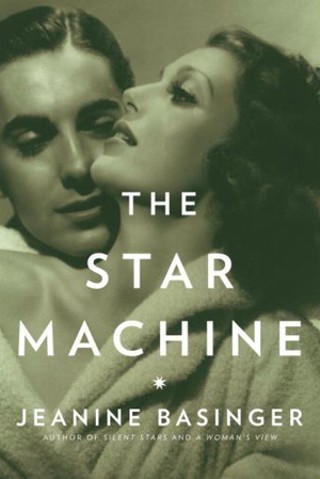
Inspiration, Melancholy
Truth be known, I've been remarkably boring this year, sticking too much to semiacademic film books, so my apologies if this reads like a syllabus. Mike Figgis' Digital Filmmaking (Faber and Faber) makes a swift and entertaining read, like a series of lectures by the sort of cranky and demanding professor who inspires and frightens in equal measure. Jeanine Basinger's The Star Machine (Knopf) nicely elucidates the nearly scientific process of making stars explode or implode in the old studio system. Elsewhere, Earl Shorris' thoughtful and melancholy The Politics of Heaven: America in Fearful Times (W.W. Norton) may not exactly tread new ground in the study of the ongoing crisis of politics and religion in America, but the book does tread that ground with an admirable mixture of sympathy and directness. And since the book got good reviews elsewhere, I'll give a quick shout-out to my friend Brian Groh, whose warm and funny debut novel, Summer People (Harper Perennial), makes me sorry I can't review it with impartiality. – Spencer Parsons
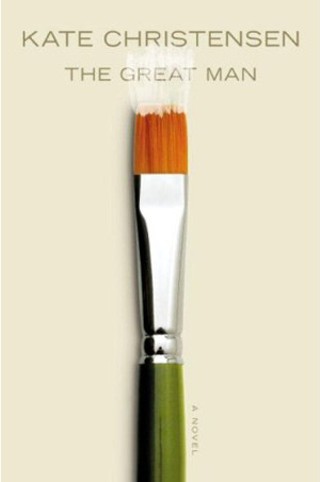
Great Man/Great Woman
The best book I read that came out this year was Kate Christensen's The Great Man (Doubleday). Never having read Christensen's previous works, novels (In the Drink, Jeremy Thrane, The Epicure's Lament) or otherwise, I had no idea what a great artist this woman is. The author's brush is sensitive to the touch, taste, smell, and sight of her characters and – cliché or not – brings them to life, a short life, at only around 300 pages. My favorite graphic novel of the year was the satirical Incredible Change-Bots (Top Shelf), good old Jeffrey Brown's homage to/parody of Transformers. Words that come to mind: hilarious (!), genius (!), more than meets the eye (!). I'm currently plowing my way through Laura Warholic or, the Sexual Intellectual (Fantagraphics), a new novel by Alexander Theroux, released just at the tail end of 2007. This hunk (at nearly 900 pages) of satirical, anachronistic literature is shaping up to be a fine piece of writing and a good lesson in elaboration. Nine-hundred pages, remember? – Sofia Resnick

Thanks for the Memories
Philip Roth's Exit Ghost is the concluding chapter in his nine Zuckerman books. Confronting medical problems and memory loss, Roth's alter ego Nathan Zuckerman returns to NYC and is quickly swept up in a vortex of interconnected relationships that confront themes of aging, friendship, and lust. At times brilliantly insightful but also painfully frustrating. Michael Chabon's The Yiddish Policemen's Union vividly creates the frozen enclave of Sitka, Alaska, where post-Holocaust Jews have settled since Israel lost its War of Independence in 1948. Part hard-boiled detective mystery, meditation on living in exile, love story, and chess puzzle, Chabon's noirish narrative and memorable characters make this a real delight. Honorable mentions: House of Meetings (Random House), Martin Amis' tale of two brothers' love triangle and harrowing survival in a Stalin-era gulag, and You Don't Love Me Yet (Doubleday), Jonathan Lethem's touching, humorous look at love among indie-rock scenesters in L.A. Guilty pleasure: Marking the 40th anniversary of the Summer of Love by re-reading Tom Wolfe's The Electric Kool-Aid Acid Test (Bantam) ... still hilarious and psychedelic. – Jay Trachtenberg





